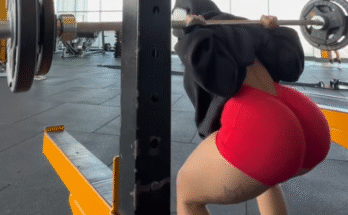Loving my body has not always come easily. Like many people, I grew up in a world saturated with narrow definitions of beauty, flooded with magazine covers, social media filters, and the constant pressure to look a certain way. For years, I internalized the message that my body needed to be thinner, smoother, taller, or somehow “better” to be worthy of love and respect. But over time, I began to understand that loving my body isn’t about achieving perfection—it’s about honoring the vessel that carries me through life, embracing my uniqueness, and treating myself with kindness and compassion.

Loving my body starts with gratitude. Every day, my body does countless things to keep me alive. My heart beats without being asked, my lungs fill with air, and my legs carry me where I need to go. My hands allow me to create, my voice lets me communicate, and my senses help me experience the world. These functions are incredible when I take the time to appreciate them. I’ve come to realize that my body is not an object to be judged—it’s a living, breathing miracle that deserves love and care.
Body love is not about ignoring the parts I struggle with—it’s about shifting my focus. For a long time, I fixated on what I thought were flaws. I wished my waist were smaller, my skin clearer, my thighs slimmer. These thoughts weighed heavily on my confidence. But when I began to practice body acceptance, I challenged those beliefs. I asked myself why I believed those features were “wrong” and whose standards I was trying to meet. Slowly, I learned to speak to myself the way I would speak to a friend—with encouragement instead of criticism, with empathy instead of shame.
Part of loving my body is respecting its needs. That means feeding it nourishing food, moving it in ways that feel good, and resting when it’s tired. I no longer exercise to punish myself or to earn a certain meal; I move because I enjoy the strength, energy, and mental clarity it brings. Some days, that means going for a run; other days, it means stretching gently or taking a walk. I listen more closely to what my body is asking for and try to respond with care rather than judgment.

Another part of my journey has been understanding that my body will change—and that’s okay. Our bodies are not static. They change with age, with life experiences, with stress, illness, and joy. The softness in my belly, the lines beginning to form on my face, the strength I’ve gained in my arms—all of it tells a story. These changes are not things to fear but evidence of a life lived. Each scar, stretch mark, or freckle is a piece of that narrative, and each deserves recognition, not rejection.
Social media and popular culture often present only one kind of beauty, but real beauty comes in all shapes, sizes, colors, and abilities. Loving my body means unlearning harmful stereotypes and expanding my understanding of what beauty really is. I’ve started following people online who look like me—or who look very different from me but radiate confidence and joy. Representation matters, and seeing diverse bodies celebrated helps remind me that mine is worthy, too.
Loving my body also means setting boundaries with people, media, and thoughts that make me feel small. I’ve walked away from conversations that centered on diet culture, unfollowed influencers who made me feel inadequate, and challenged my own negative self-talk. I now realize that I am not obligated to shrink myself, to apologize for taking up space, or to live in constant pursuit of someone else’s ideal.
It’s important to acknowledge that body love is not always a straight path. There are days I still struggle—days when I don’t feel confident or when old thoughts creep in. But loving my body isn’t about feeling perfect all the time. It’s about commitment. It’s a relationship I’ve chosen to nurture, knowing that, like any relationship, it requires patience, forgiveness, and consistent effort. On difficult days, I remind myself of how far I’ve come and how much my body has carried me through.

Body love is also political. In a world that profits from our insecurities, choosing to love and accept my body is an act of resistance. It’s a way of saying that I refuse to believe I’m not enough. It’s about reclaiming my right to exist in my body exactly as it is, without needing to justify, explain, or change it to fit someone else’s comfort. It’s about celebrating the diversity of bodies everywhere and fighting for a culture that values people beyond appearances.
One of the most powerful changes I’ve experienced is learning to see beauty differently. I no longer define it solely by smooth skin or flat stomachs. I see it in laughter lines, in the power of strong legs, in the glow that comes from someone who feels at home in their skin. I see it in resilience, in softness, in individuality. My body, with all its imperfections, is beautiful because it is mine, because it tells my story, and because it carries me through every moment of this life.

Loving my body has changed the way I relate to others, too. I have more compassion for people of all body types. I compliment others in ways that go beyond appearance. I support my friends in their own journeys toward self-love. I celebrate their progress without comparison. When we begin to accept ourselves, we also learn to extend that acceptance outward—to our friends, family, and even strangers. Body love creates a ripple effect.
At its core, loving my body is about freedom. Freedom from shame, freedom from constant comparison, freedom to live fully. It allows me to dance without self-consciousness, to wear what I like, to rest without guilt, and to enjoy life’s pleasures without restriction. It opens the door to deeper self-worth and joy, because I no longer base my value on how I look on any given day.
In conclusion, “Love My Body” is more than just a personal affirmation—it’s a philosophy, a mindset, and a practice. It’s an ongoing journey that involves unlearning, healing, and growing. It doesn’t mean I always feel confident or that I’ve reached some final destination. But it does mean that I’ve chosen to treat myself with dignity, to appreciate what my body does for me, and to resist the voices—both external and internal—that say I must change to be worthy. My body is mine. It is strong, it is sacred, and it is loved.



